Our Mediators:
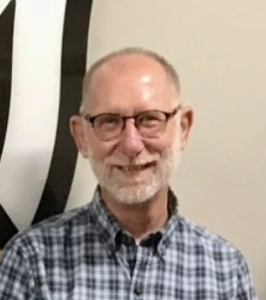
Keith
- Retired School Social Worker
- ECR Board Vice Chair
- ECR Mediator for 2+ years
Being a mediator is like being on the bow of a boat giving feedback of obstacles and clearings to the captains of vessels to navigate where sea and shore meet.
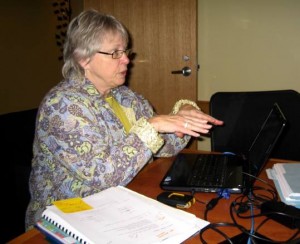
Angie Briner
- Retired Educator
- Former ECR Executive Director
- ECR Mediator for 25+ years.
From the very first mediation I realized there was something very special and life-changing about the mediation process. I witnessed relationships mended in families, churches, the workplace, and in schools. I saw people transformed from being hopeless in a situation to leaving the mediation with hope for a better relationship in the future.
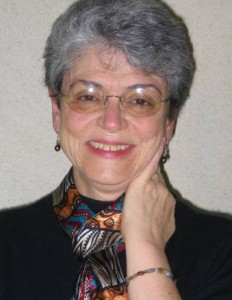
Bev Eikenberry
- Retired Educator
- Served in the Peace Corps
- Worked with Brethren Colleges Abroad
- ECR Mediator for 20+ years
Helping people to understand that they, themselves, have the answers to their own conflict; that they have within themselves the means to relieve their own suffering, is what inspires me to continue to do the work of mediation.
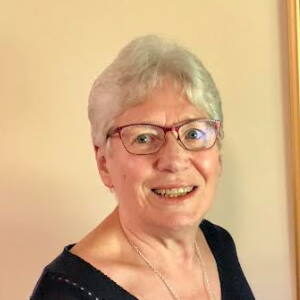
Jan Rhoades
- Retired Social Work Educator and Clinical Social Worker
- ECR Board Member
- Recently joined as ECR Mediator
I am a retired social work educator and clinical social worker. I taught students skills for active listening and reflecting back to the client thoughts and feelings they expressed. I have used those skills in therapy with clients. It is satisfying to use these skills as a mediator and in helping mediation participants to use the skills as they learn to really listen to one another and work toward finding solutions to their differences.

Dean Beery
- Retired Educator
- Former ECR Board Chair
- ECR Mediator for 20+ years
I am often surprised by how well mediation works. To come into a situation where people are stuck and don't see any way out, and then for them to find common interests and a solution is rewarding.
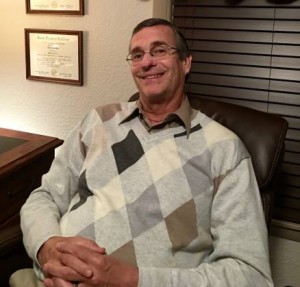
John Horn
- Retired Air Force Officer
- Retired Educator
- Recently joined ECR Board of Directors
- ECR Mediator for 2+ years
After retiring as a school counselor, I knew I wanted to stay active and also feel I was helping others. After my first mediation with Angie Briner, I knew this was the path I wanted to pursue. Hope to be doing it for some years to come!

Bob Gross
- Retired from "On Earth Peace"
- Former ECR Executive Director
- ECR Mediator for 20+ years.
I was part of the first group of volunteer mediators trained by ECR. That was in 1990 or 1991. Working for peace has always been central to my life. So when I was invited to be a volunteer mediator for ECR, I saw it as another kind of peacemaking work. I found that this kind of work suited my personality, interests and abilities. Through the years I have mediated a large number of cases.
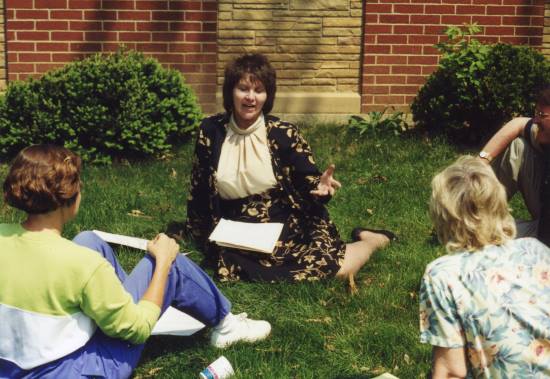
Carol Horn, center, training students in conflict mediation and resolution.
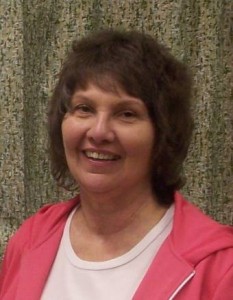
Carol Horn
- Retired Elementary Teacher
- Former ECR Executive Director
- ECR Mediator for 20+ years
Life is complicated for many families and communities these days, especially the children. Yet, those of us who are mediators see some 'miracle moments' for spouses, parents, grandparents, and organizations who choose, or are court referred, to work on the situation through mediation. They often seem surprised to know that they can calmly talk and listen instead of threatening and giving ultimatums. In the process, they experience and practice communication skills that can be applied to other aspects of life.
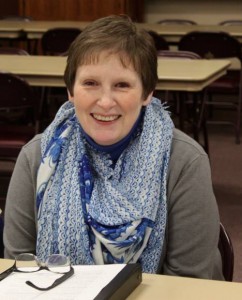
Sebrena Cline
- Associate Pastor of The Congregational Christian Church
- ECR Mediator for 3 years.
It's amazing to watch the change that happens as mediation progresses. Folks who walk in with muscles tight, backs rigid and voices strained begin to release that tension as they gain confidence in the mediators and the process. In the end, resolution brings with it a new awareness that managing conflict is something that can be healthy and achievable.
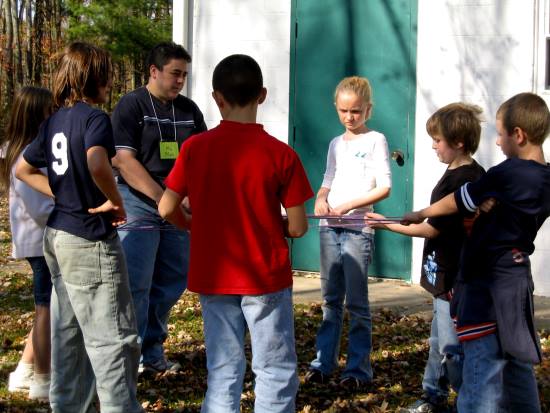
Mia Miller (center) participating in a trust exercise with 4th graders during a Peace Learning Connection Week.
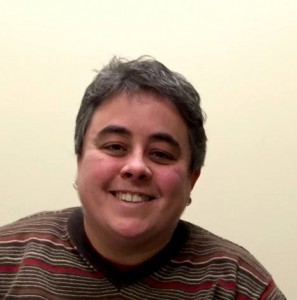
Mia Miller
- Academic Support Advisor and Adjunct Instructor at Manchester University
- ECR Mediator for 8 years.
Mediations that stand out to me are the ones that seemed hopeless at the beginning. Often, individuals will come to mediation as a last resort and not believing that it will make a difference. These situations are the most powerful because when properly supported in the mediation process, these individuals often surprise themselves and one another as they find creative ways to resolve their conflicts. Everybody wins.”
